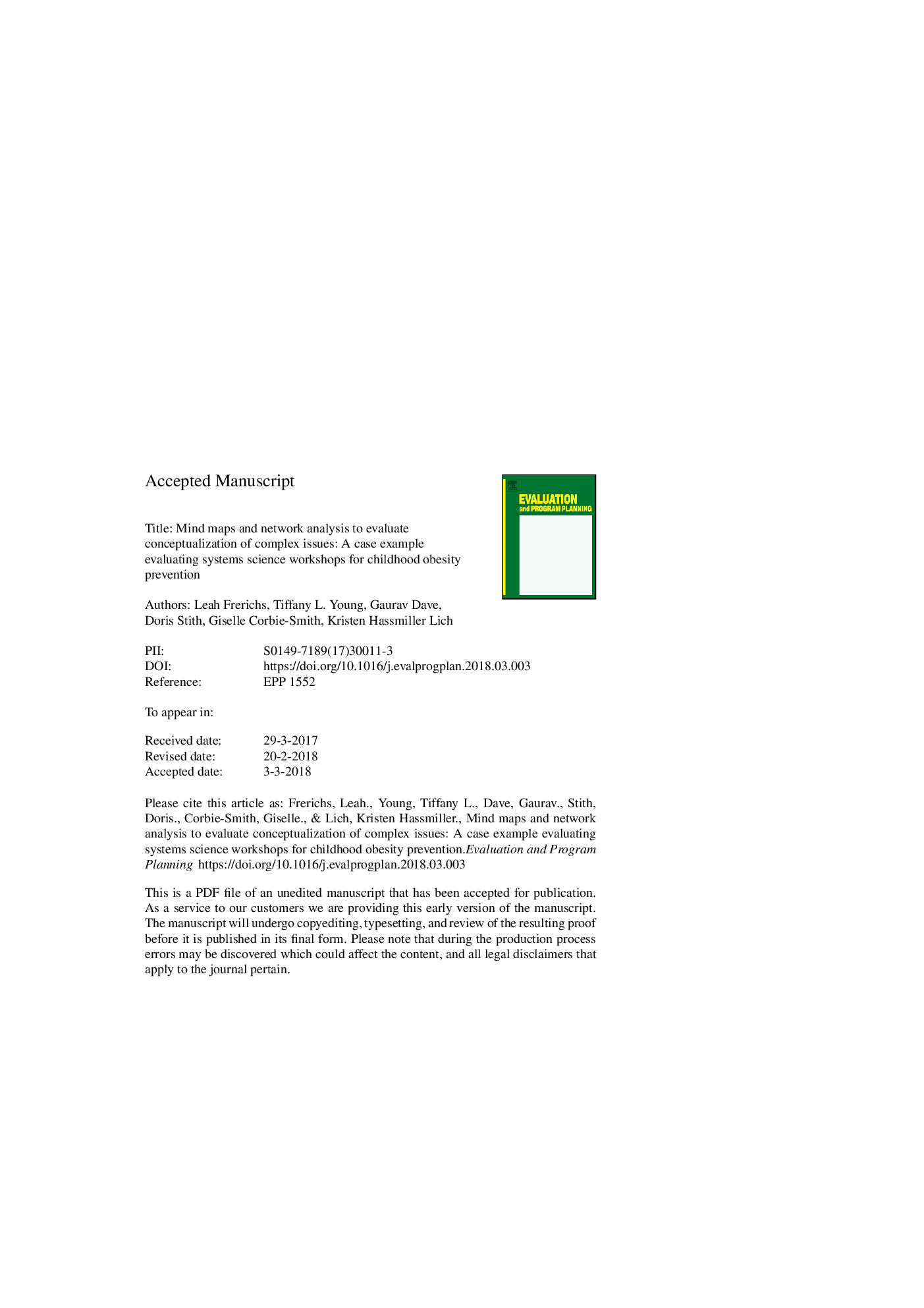| Article ID | Journal | Published Year | Pages | File Type |
|---|---|---|---|---|
| 6792344 | Evaluation and Program Planning | 2018 | 39 Pages |
Abstract
Across disciplines, it is common practice to bring together groups to solve complex problems. Facilitators are often asked to help groups organize information about and better understand the problem in order to develop and prioritize solutions. However, despite existence of several methods to elicit and characterize how individuals and groups think about and conceptualize an issue, many are difficult to implement in practice-based settings where resources such as technology and participant time are limited and research questions shift over time. This paper describes an easy-to-implement diagramming technique for eliciting conceptualization and a flexible network analysis method for characterizing changes in both individual and group conceptualization. We use a case example to illustrate how we used the methods to evaluate African American adolescent's conceptual understanding of obesity before and after participating in a series of four systems thinking workshops. The methods produced results that were sensitive to changes in conceptualization that were likely driven by the specific activities employed during the workshop sessions. The methods appear strong for capturing salient levels of conceptualization at both individual and collective levels. The paper concludes with a critical examination of strengths and weaknesses of the methods and implications for future practice and research.
Related Topics
Health Sciences
Medicine and Dentistry
Public Health and Health Policy
Authors
Leah Frerichs, Tiffany L. Young, Gaurav Dave, Doris Stith, Giselle Corbie-Smith, Kristen Hassmiller Lich,
